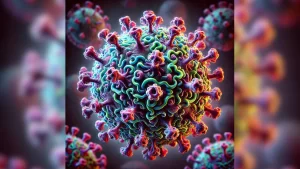
Prostate Cancer – The Manopause
Dr. Atul Goswami, Chief & Senior Consultant, Uro-Oncology, Action Cancer Hospital
- 1 in 5 men suffer from prostate cancer in their lifetime
- Sunshine can protect against prostate cancer
- Dietary changes can reduce prostate cancer risk drastically
Prostate is a walnut sized male reproductive gland located in front of the stool passage (rectum), at the base of urine bag (urinary bladder) surrounding the urine outlet pipe (urethra). In a normal adult, it weighs around 20 grams. The size of this gland increases slowly with age. This is known as Benign Prostatic Hyperplasia (BPH) or Lower Urinary Tract Symptoms (LUTS). But, it may grow too large causing problems. This condition is very common in males over 50 years of age. BPH is non-cancerous enlargement. Prostate cancer is often seen in men after 60 years of age. It is the second most common cancer in men (after lung cancer) and the second major cause of death for elderly men. 1 in 5 men get diagnosed with prostate cancer during their lifetime.
There are often no early prostate cancer symptoms. Many men never get to know that they are suffering from prostate cancer at early stages. Symptoms of ANY prostatic problem include frequency of urination (increase in the number of times), urgency to urinate (becomes unavoidable and urgent), straining (forceful trying to empty the bladder), hesitancy while urination (weak stream of urine), urging even after urination (incomplete/unsatisfied emptying feeling), burning/pain during urination (dysuria), dribbling of urine even after voiding urine, some amount of blood in urine (hematuria), frequency of urine at night (nocturia), and/or uncontrolled outflow of urine. The early symptoms of Benign Prostatic Hyperplasia and Prostate Cancer are nearly the same as these are not symptoms of the cancer disease. Instead, these symptoms are caused due to the blockage from the cancerous growth in the prostate in cancer patients and by the enlargement of prostate tissue in BPH cases.
Symptoms of advanced prostate cancer may include dull, deep pain or stiffness in the pelvis, lower back, ribs, or upper thighs; pain in the bones of those areas; loss of weight and appetite; tiredness, nausea, or vomiting; swelling of the lower extremities; weakness or paralysis in the lower limbs, often with constipation. According to Dr. Atul Goswami, Chief & Senior Consultant, Uro-Oncology, Action Cancer Hospital, in prostate cancer there is a10% chance of the disease to pass from one generation to other. Which means that it’s an hereditary disease and every person with family history of prostate cancer should undergo prostate screening.
The presence of prostate cancer may be indicated by symptoms, physical examination, prostate-specific antigen (PSA), or biopsy. Treatment generally involves surgery, various forms of radiation therapy, proton therapy or, cryosurgery. Hormonal therapy and chemotherapy are generally reserved for advanced disease cases.
Some dietary changes can help maintain good prostate health and may help ward off cancer. Lycopene and selenium reduces the danger of prostate cancer very fast. Vegetables such as broccoli, cabbage and cauliflower contain isothiocyanates, which are phytochemicals and antioxidants that are protective for prostate cancer. Fish and vegetable oils high in omega-3 fats are also very effective. Vitamin E is known to reduce prostate inflammation. Its sources include vegetable oils, nuts and seeds, whole grains, etc.
A study of nearly 50,000 men found that Lycopene, found in foods as tomatoes, tomato products, and watermelons appears to reduce the risk of prostate cancer drastically. Selenium is another mineral that offers great protection. This antioxidant is found in nuts, seafood, meat, fish, wheat bran, oats, and brown rice. Soy products can also help prevent prostate enlargement and may slow tumour growth. This effect is attributed to isoflavones, plant chemicals that help lower dihydrotestosterone (DHT), a male hormone that stimulates the overgrowth of prostate tissue.
Red meat on the other hand is high in saturated animal fats and has been linked to an increased incidence of prostate problems. Excessive weight has also been linked to prostate troubles. Anyone with an enlarged prostate should drink plenty of water and other non-alcoholic fluids to flush the bladder. Caffeine and beer should be reduced to a minimum as they irritate the urinary tract.





